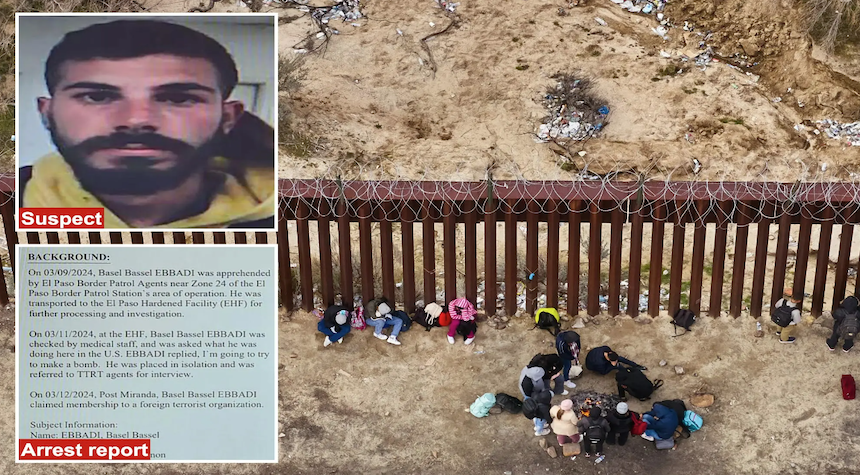Another day, another alarming incident involving a criminal attempting to cross the border. Basel Bassel Ebbadi stands as the perpetrator this time, identified as a Hezbollah terrorist, a Lebanese group known for its attacks on Israel. Border Patrol agents nabbed Ebbadi near El Paso, Texas on March 9th.
Ebbadi confessed to his 11-year affiliation with Hezbollah and his intention to construct a nuclear bomb. He expressed plans to exploit New York’s ‘right to shelter’ laws, granting him a 60-day stay. Furthermore, he admitted to using a false identity during his border crossing and disclosed that his documents were stolen in Costa Rica, mentioning his father residing in Ecuador.
While Ebbadi claimed he attempted to defect from Hezbollah and posed no threat, his entry into the United States remains unjustifiable, especially given his unsettling remarks to Border Patrol agents.

Ebbadi’s case sparks concerns about the efficacy of border security measures. Border Patrol statistics reveal that since Fiscal Year 2019, 330 “Known or Suspected Terrorists” (KSTs) have made attempts to cross into Canada, with 59 incidents occurring since the fiscal year’s inception. However, these numbers solely represent apprehended individuals, leaving the actual count of border-crossing criminals uncertain.
The apprehension of Michelle Angelica “La Chely” Pineda in February for illegally crossing into El Paso, Texas from Mexico, adds to these concerns. Pineda is affiliated with the “Assassin Artists” gang, associated with the Sinaloa Cartel.
These ongoing incidents prompt questions not only about border safety but also about the rationale behind an open-border policy.


